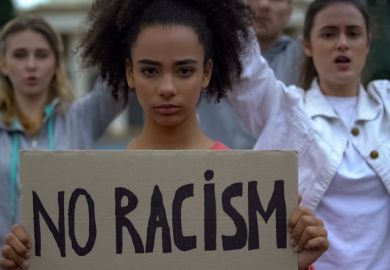Every university department should have a position dedicated to decolonisation, according to a new report.
The paper, published by the Higher Education Policy Institute on 23 July, explains that the “current stasis around decolonisation is fuelled by a lack of training and institutional memory, and increased staff workload”.
Departments should therefore hire at least one staff member per department to work specifically on its decolonisation issues, it says. The role would involve creating channels for discussion between students and staff, such as through working groups or student internships.
This role should be filled by someone who is trained in decolonial pedagogy and could also be a position for an early career scholar, the report recommends.
For the report, author Mia Liyanage, a master’s student in US history at the University of Oxford, interviewed activists, academics and policymakers and found that although decolonisation has become much more visible in higher education in recent years, it remained confined to equality, diversity and inclusion initiatives.
According to the interviewees, this is an incredibly damaging misconception, because it allows “tokenistic or unrelated measures to be rebranded as decolonial”.
For example, simply adding scholars of colour to reading lists was regarded as a “small, and therefore limiting, change”. At the same time, efforts to close the attainment gap were not enough because, currently, it would mean students merely assimilating into a white-dominated curriculum.
“Meaningful engagement with decolonisation requires reassessing curricula, attainment and representation concurrently,” the report says. Decolonisation is “a vital part of universities’ future” because it will allow educators and students to “engage critically with the issues at stake in the modern world”.
A reassessment of courses and pedagogy would raise academic standards and allow students to become the “global citizens” that universities say they want their students to be, it says. It is a mistake to think that decolonisation only benefits black and ethnic minority students, according to the report.
The report goes on to say that a less defensive approach from those within universities will be crucial. Respondents explained that they regularly experienced hostility when they advocated for decolonisation, causing them to worry about the impact on their marks or their future job prospects. One academic said that while teaching a cultural competency workshop, the negative comments she received ultimately led her to have to co-deliver the course with a white colleague.
Interviewees said that there was often a fear that decolonisation appeared “too radical” or a misunderstanding that it would mean substituting non-Western texts for existing ones and therefore posing a threat to existing academics, when it actually means adding rather than taking away from the curriculum, the report says.
Specific funding for BAME research would be needed to tackle this problem, according to the report. This would need to be done by reprioritising existing funds but also should include funding from the government and national academic bodies.
Research funding should also come alongside an increase in black studies in the UK, such as the black studies degree programme at Birmingham City University and the new MA programme in black British history at Goldsmiths, University of London.
Ms Liyanage told Times Higher Education that universities were “at a moment where decolonisation and how to be anti-racist is really at the forefront of our political discussions”.
“There are huge benefits to universities [if they decolonise] because it will make them more intellectually stimulating and more academically rigorous…and that understanding will help to improve the lives of staff and students who are currently ignored and face bias and discrimination,” she said.
Register to continue
Why register?
- Registration is free and only takes a moment
- Once registered, you can read 3 articles a month
- Sign up for our newsletter
Subscribe
Or subscribe for unlimited access to:
- Unlimited access to news, views, insights & reviews
- Digital editions
- Digital access to THE’s university and college rankings analysis
Already registered or a current subscriber?







